Hyundai was among the first to offer an affordable long-range electric car. The only competitor Kona had when it was launched in 2017 with a range of 445 kilometers (WLTP) was the Opel Ampera-e. Which was on paper, but had such a long delivery time that very many bought a Kona instead. It’s easy to understand. Speaking of range, it had the Nissan Leaf and e-Golf so far in the rearview mirror that it was not fun once. And the much more expensive and larger Tesla S was not a real option for people who wanted a car in a sober price range.
Small pretend-SUV
Hyundai Kona has the lines of an SUV, but it is so small that it probably does not deserve to be called a crossover. Although many describe it that way. I would simply call it a small car, as the interior space is much like in a VW Polo. The trunk is actually smaller in the Kona. This is thus not a family car, or one you pack for a longer overnight trip, but a nice car for two. Or if you have some broilers in the family that have grown out of the child seat, but have not reached full length, then it can be considered.
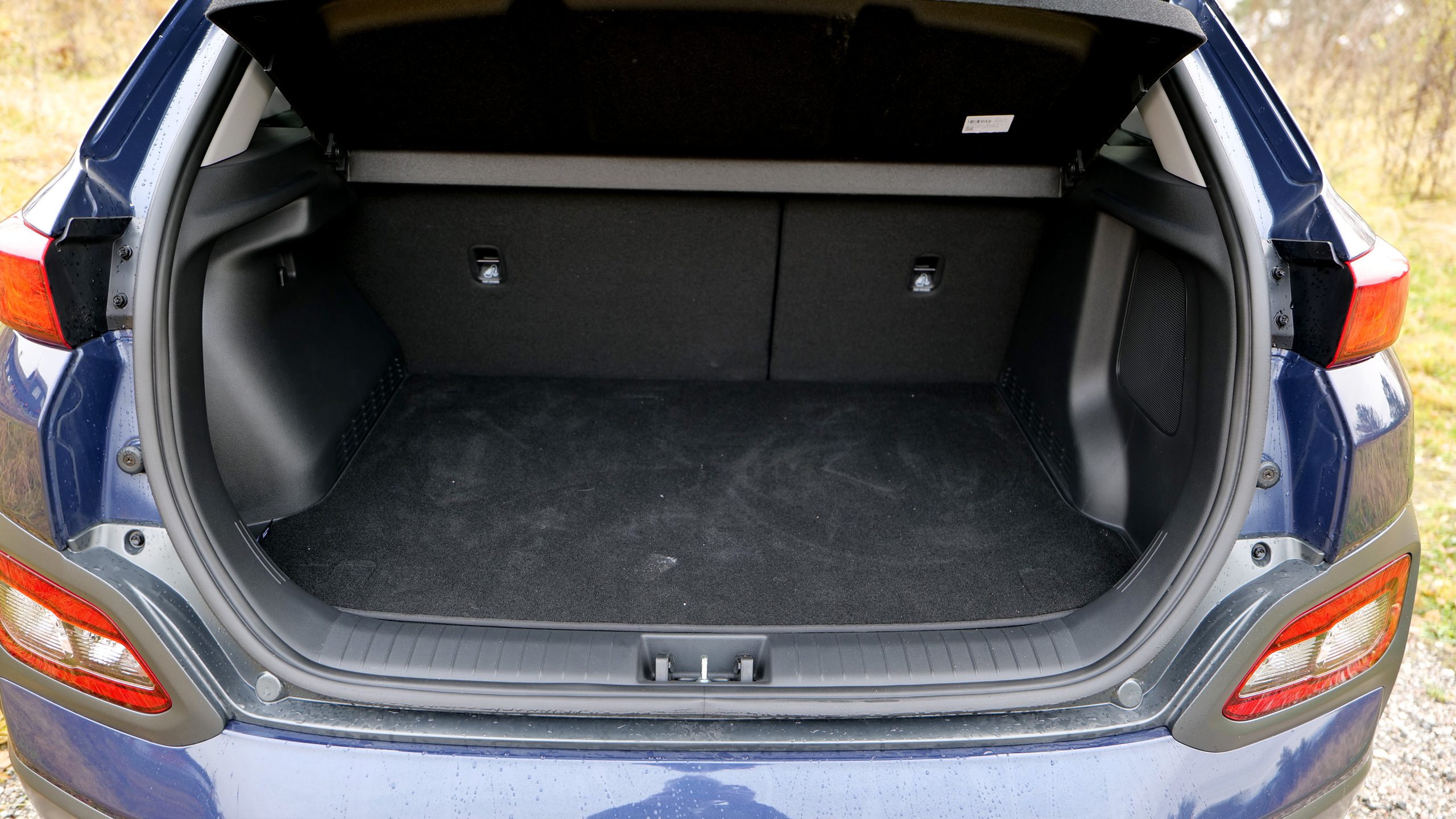
Sound system from Krell
But it is not legroom and luggage space that make this a relevant car for me. It is the sound system, which bears the name Krell. Hi-fi enthusiasts know that Krell is an American hi-fi brand, founded in its time by Dan D’Agostino. It was not cheap; no one was surprised that an amplifier could cost a few hundred thousand kroner.
However, when D’Agostino and Krell parted ways in 2009, the company took a new route. Among other things, they started with car stereo in 2013, under the sister name Krell Automotive, and have since collaborated with Asian car brands such as Honda, Acura and Hyundai.
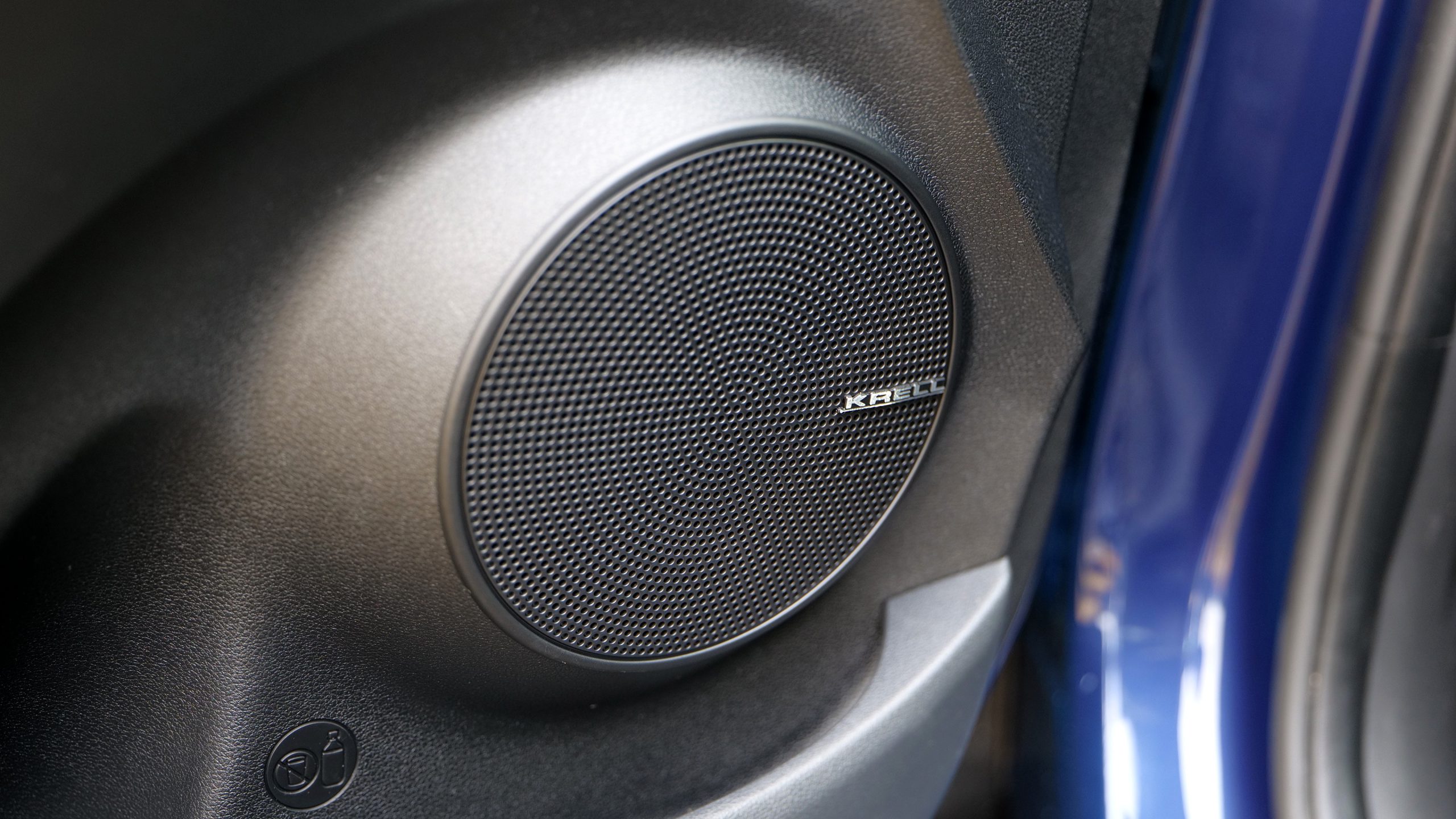
In the car stereo context, Krell is much cheaper, but it can not be accused of being cheap. But then there are also good things, which I should experience with the Hyundai Kona.
To get the Krell sound system in your Hyundai Kona, you need the Premium package. It cost 4000 extra, until recently. But now it is actually no longer possible to order the car without the premium package. The starting price is now 40,000, and that includes the Kona facility.
Equipment
The Krell system consists of eight speaker elements, where the center speaker is a full-tone speaker. In front we find a 6.5 “midrange and a 1” treble element in each door, while the rear seats only have their own midrange element. In the luggage compartment on the right side, the 8 “large subwoofer is mounted. To power it all, you have an amplifier of a total of 400 watts.
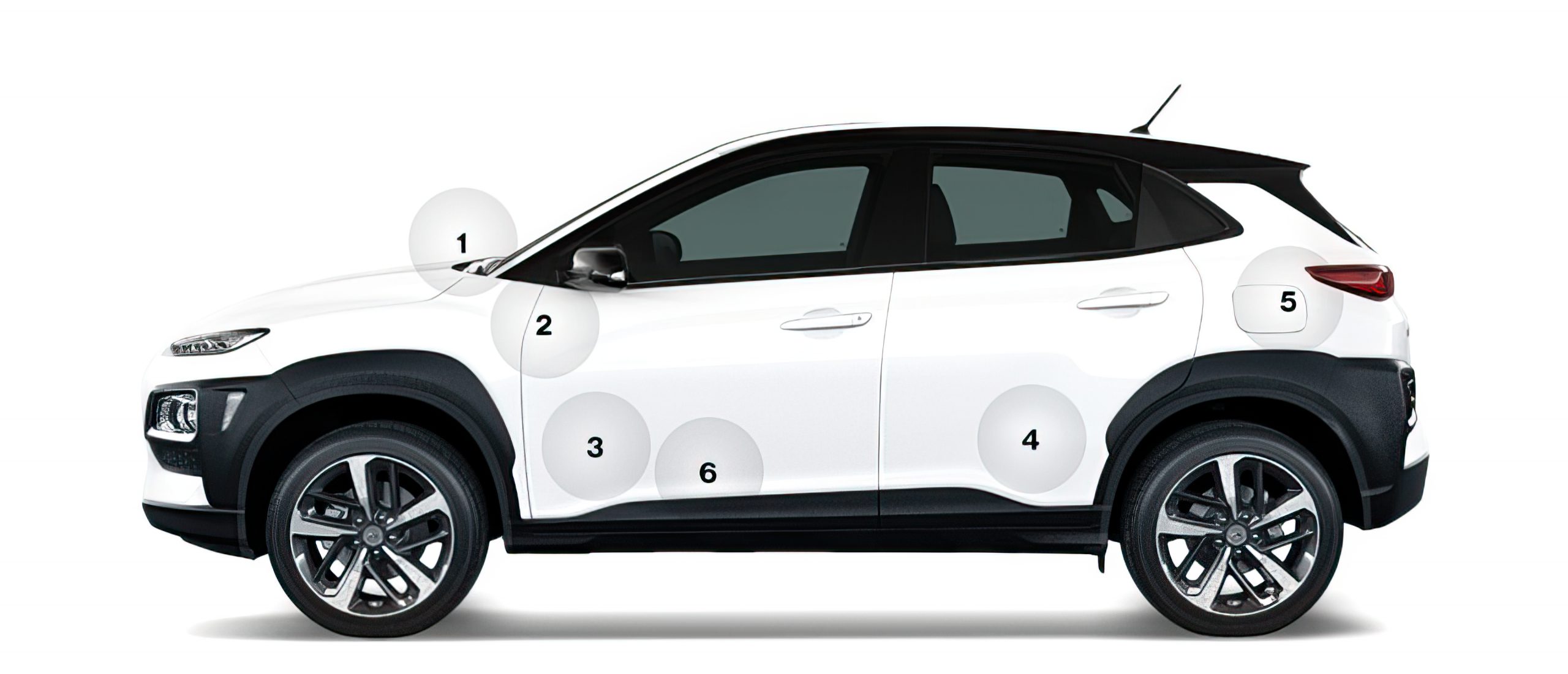
6: 1 x 400W 8-channel amplifier
No range anxiety
Before we go into the quality of the sound system, we must briefly look at the driving characteristics. The wife feels like a very safe and good car, and it’s nice not to feel range anxiety. And plus that it can finally be equipped with a towbar! The cabin is characterized by a bit of plastic for the comfort of the leather seats, and it also includes the charging hatch which must be opened manually from the outside. There are two plastic covers which, when removed to reach the charging sockets, hang and dangle in their respective plastic strings. A fairly inexpensive solution, with room for improvement.
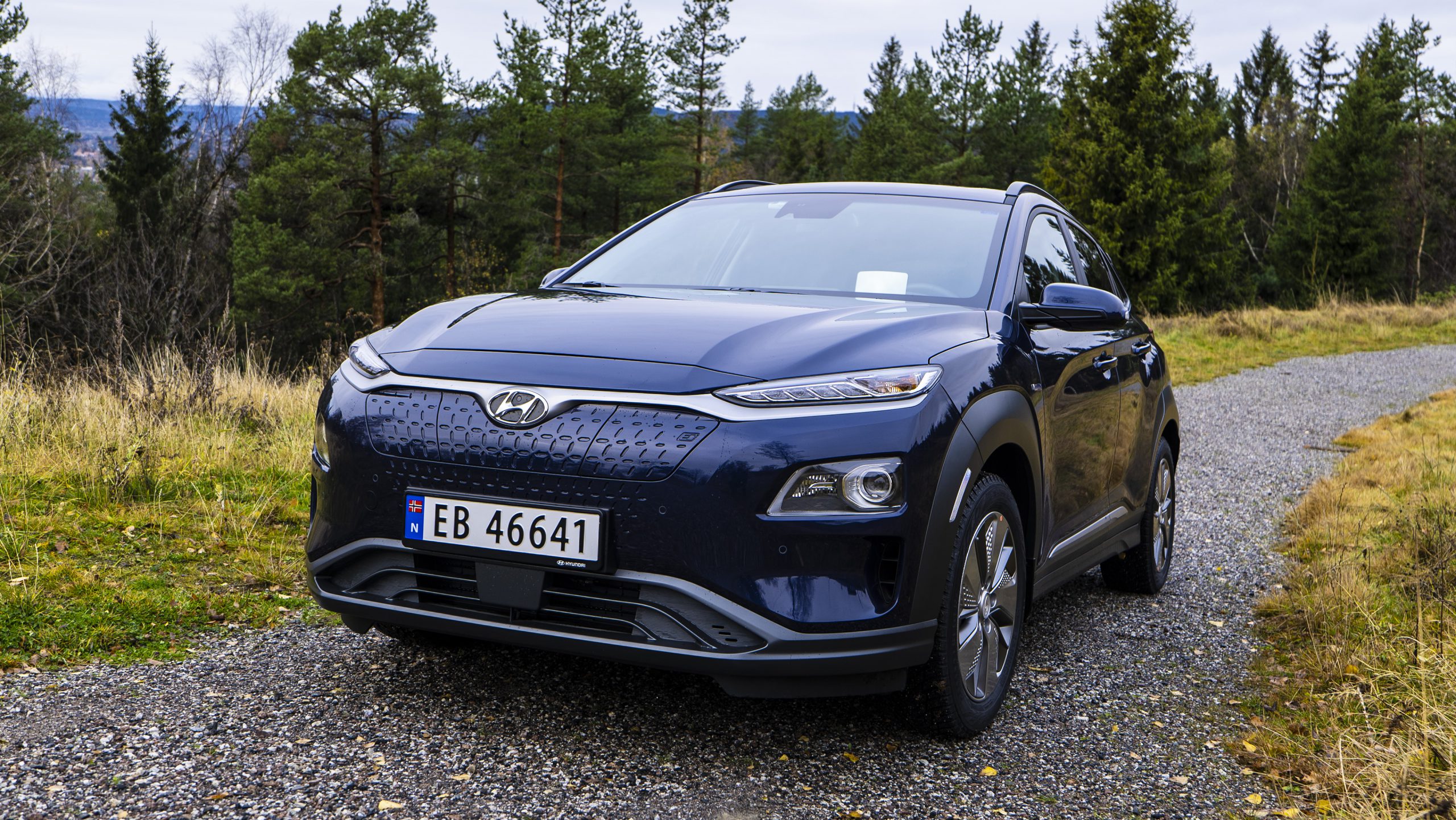
Adaptive cruise control
In the heaviest equipment version that I got to test, I loved the adaptive cruise control with active file holder activated. In well-marked roads, the car keeps the lane automatically and feels the road, although it is a requirement that the driver holds the steering wheel.
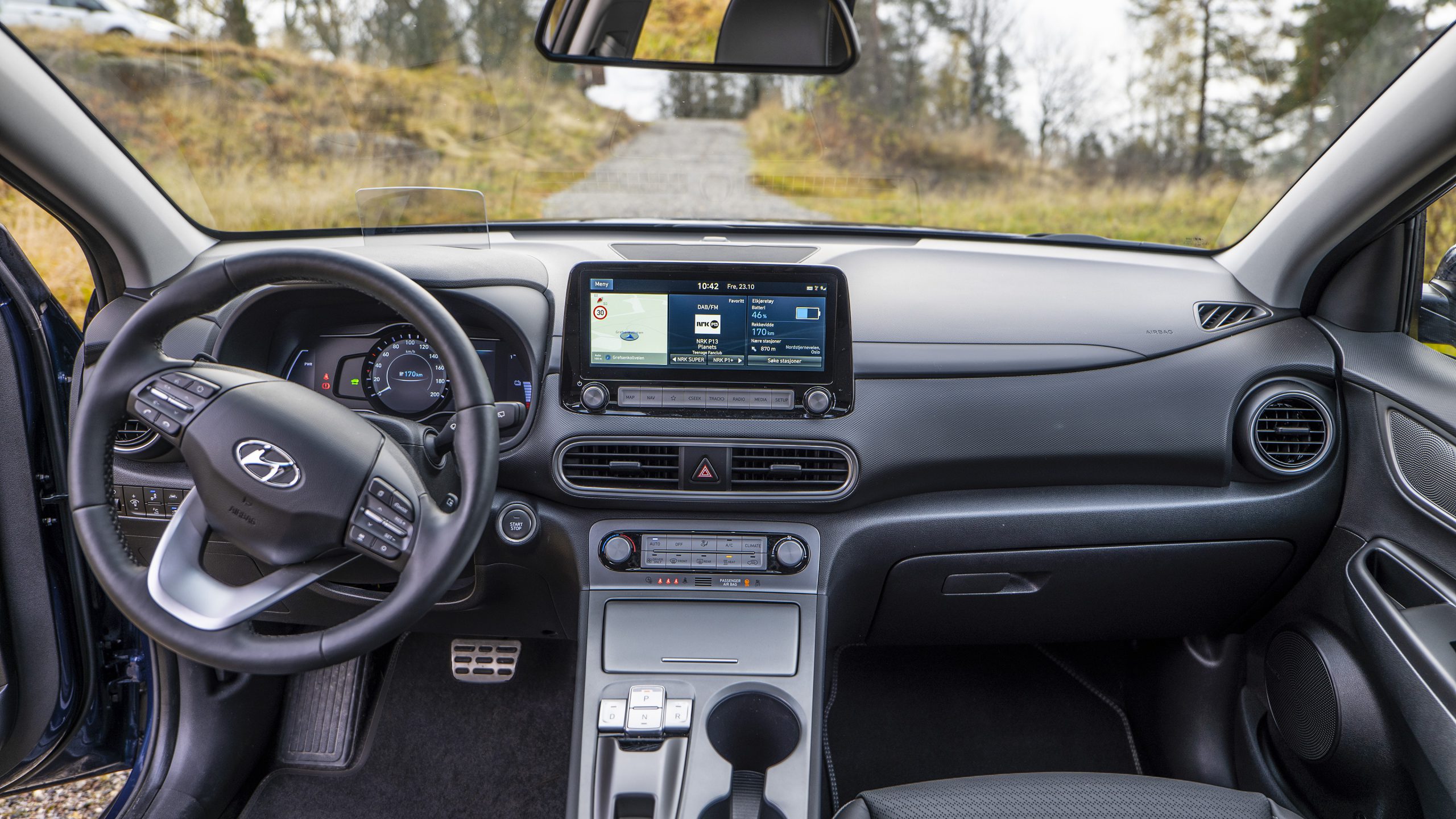
An annoyance should be mentioned. I am a long-distance supporter of holding hands on eight and four, if the steering wheel was a dial. But with active cruise control activated, the Kona does not register that I have my hands on the wheel at all. The instrument panel will then shortly remind me to keep my hands on the steering wheel – even though I already have a grip on the steering wheel. Reluctantly, I place my hands instead of ten and two, so that the car will be quiet.
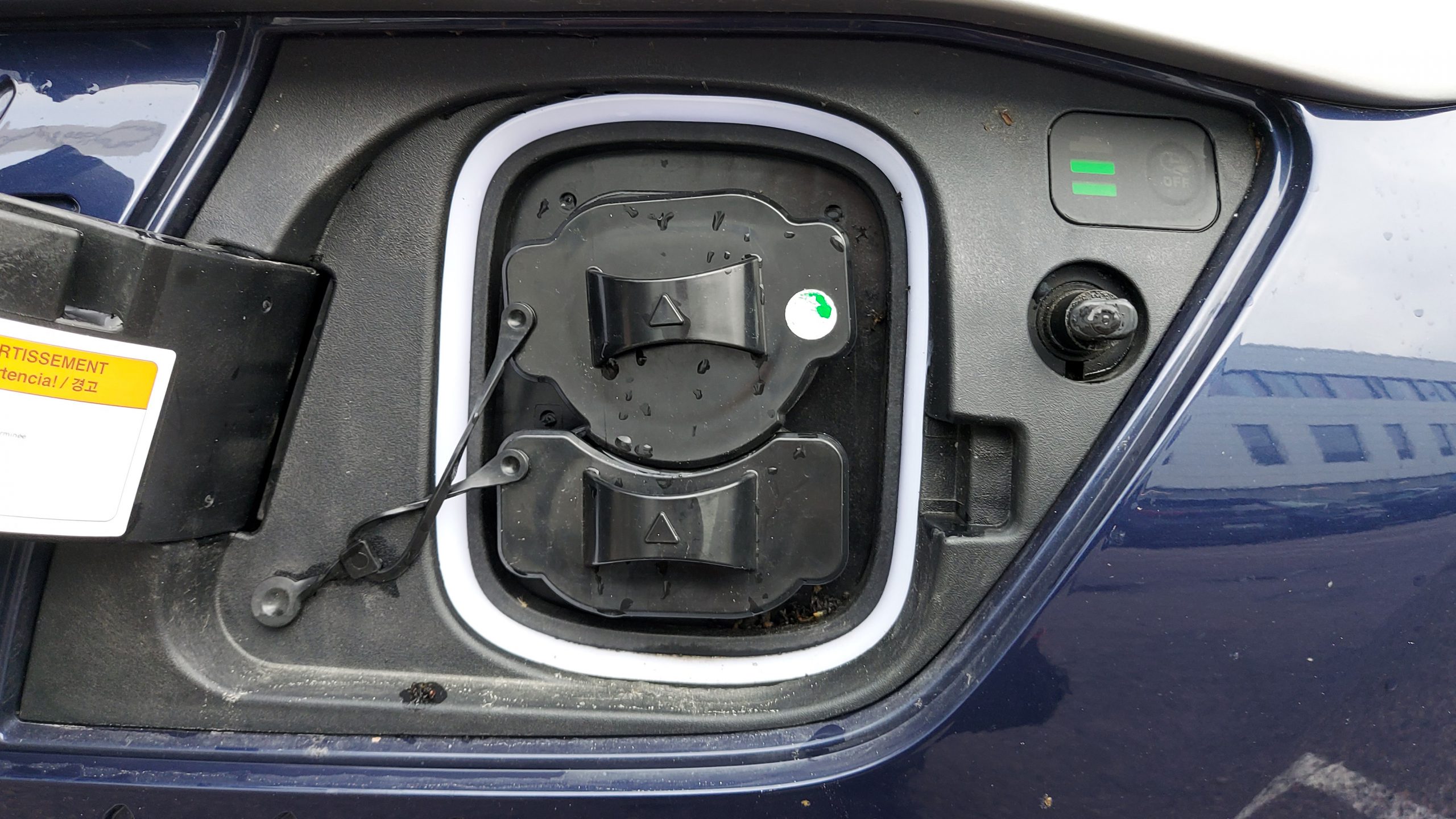
Otherwise, the car is good to drive, and it is clearly agile enough to make safe overtaking. 0-100 in 7.6 seconds is plenty! It certainly does not have the same torque and fun factor as the Mini Cooper SE, also because the Kona is significantly heavier. But in Sport mode, it has more than enough guff.
The GPS system works fine, but I prefer to use Android Auto or Apple CarPlay with my mobile. Even if the navigation then does not automatically keep control of the battery level and charging stations on the road.
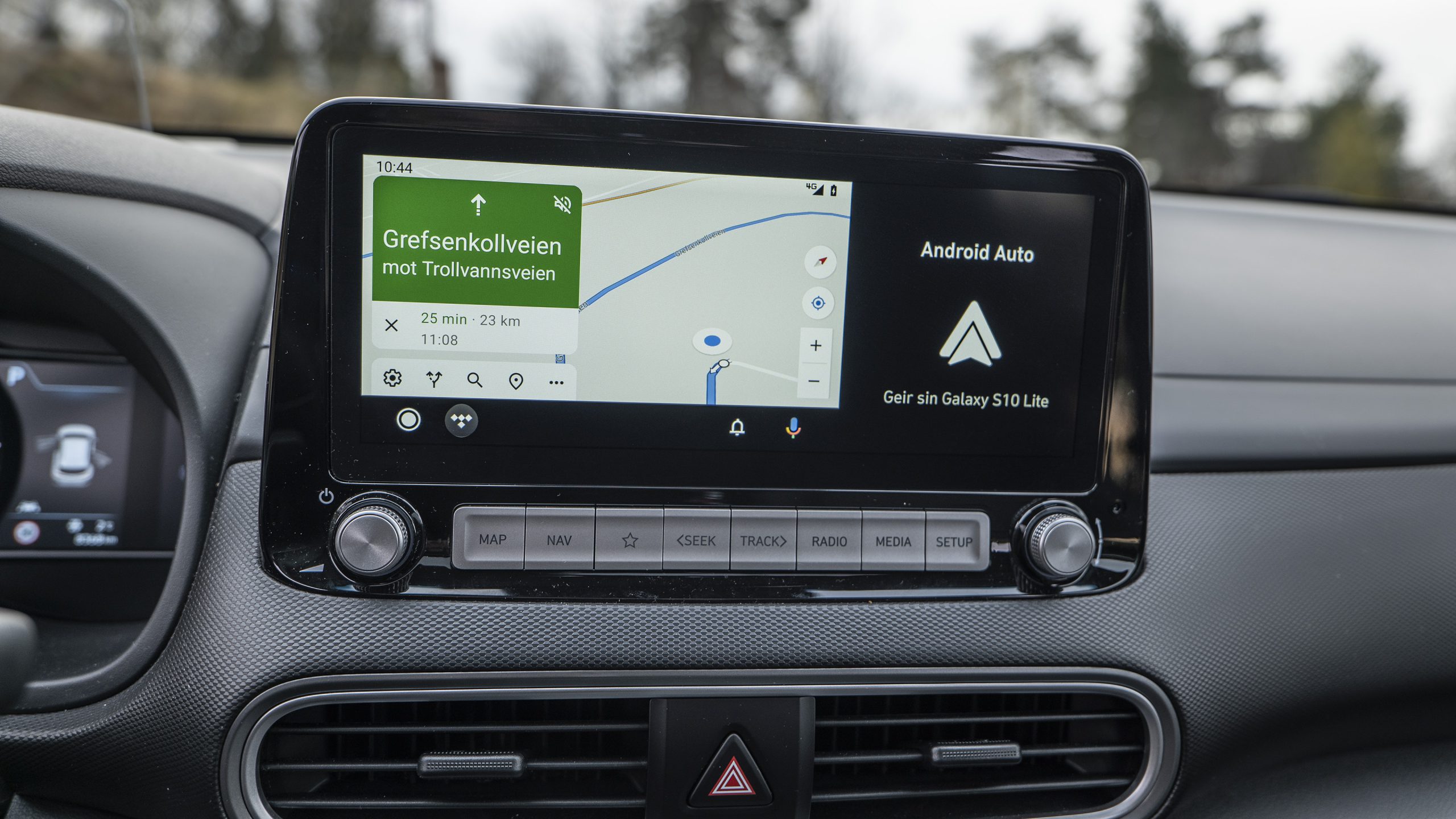
Decent noise reduction
The cabin is on average well damped. I feel the Honda e was chopped quieter at high speeds, the same with the Mini Cooper SE and Lexus UX 300e. But at the same time, the Hyundai Kona makes less noise than my own 2013 Nissan Leaf. All right, in other words.
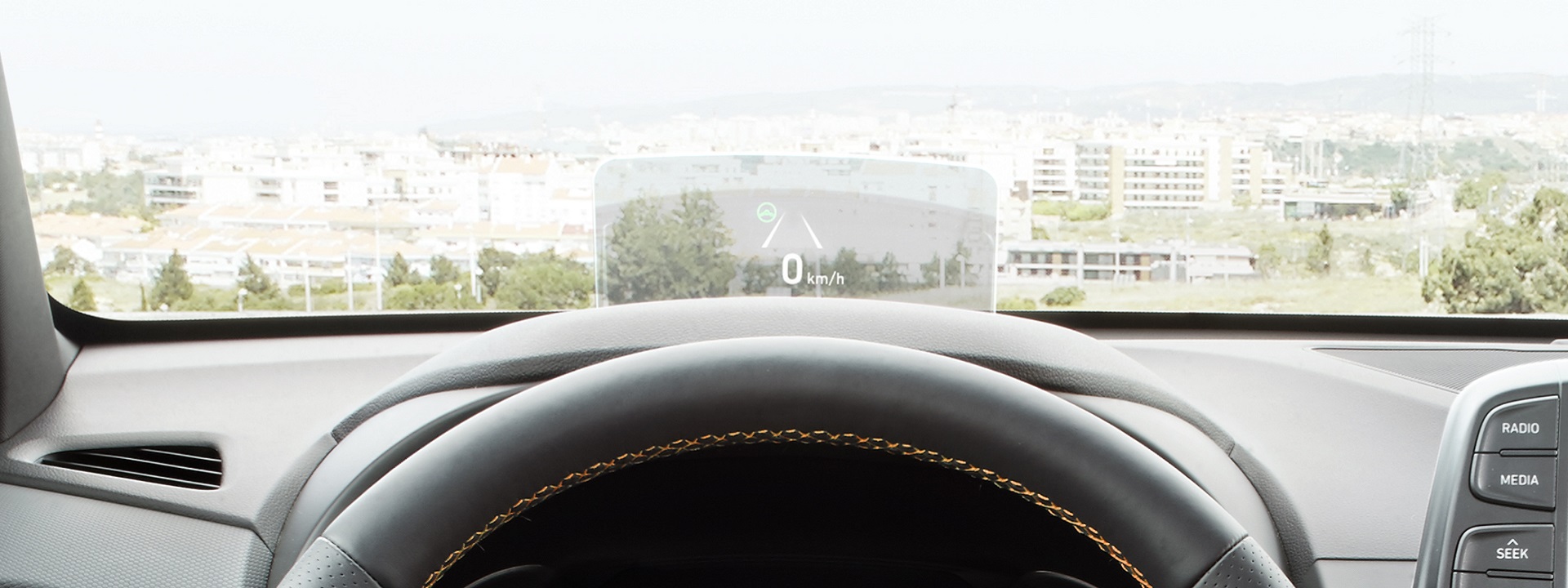
Play music!
Play up, maestro! After driving around in the car for a week, it is only to be noted that the sound is bell-ready, with great tonality on instruments and singing voices. I adjusted the sound a bit, by muffling the bass with two notches (it was a bit loud), and increasing the midrange with one notch to better bring out voices and instruments.
The sound mode named Natural highlights the voices more in the midrange, while the center speaker is then used to pull out the soundscape in front of the driver. In Reference mode, you only get regular stereo, and then instruments and voices come further down in the cabin.
Clear sound, that is, and in addition, the system can play loud. When I stressed the system in Honda e with rock and rap, the amplifier went into protection mode and cut the sound for over half an hour. It does not happen in Kona. Here you can play loud, with good control, and the sound stays clear.
It may not be quite the same bass control here as in the Honda e, and definitely not as in the Mini Cooper SE. But the sound is more than loud enough, and the Krell system demonstrates why it pays to go for better sound in the car, than you normally get from the standard system.
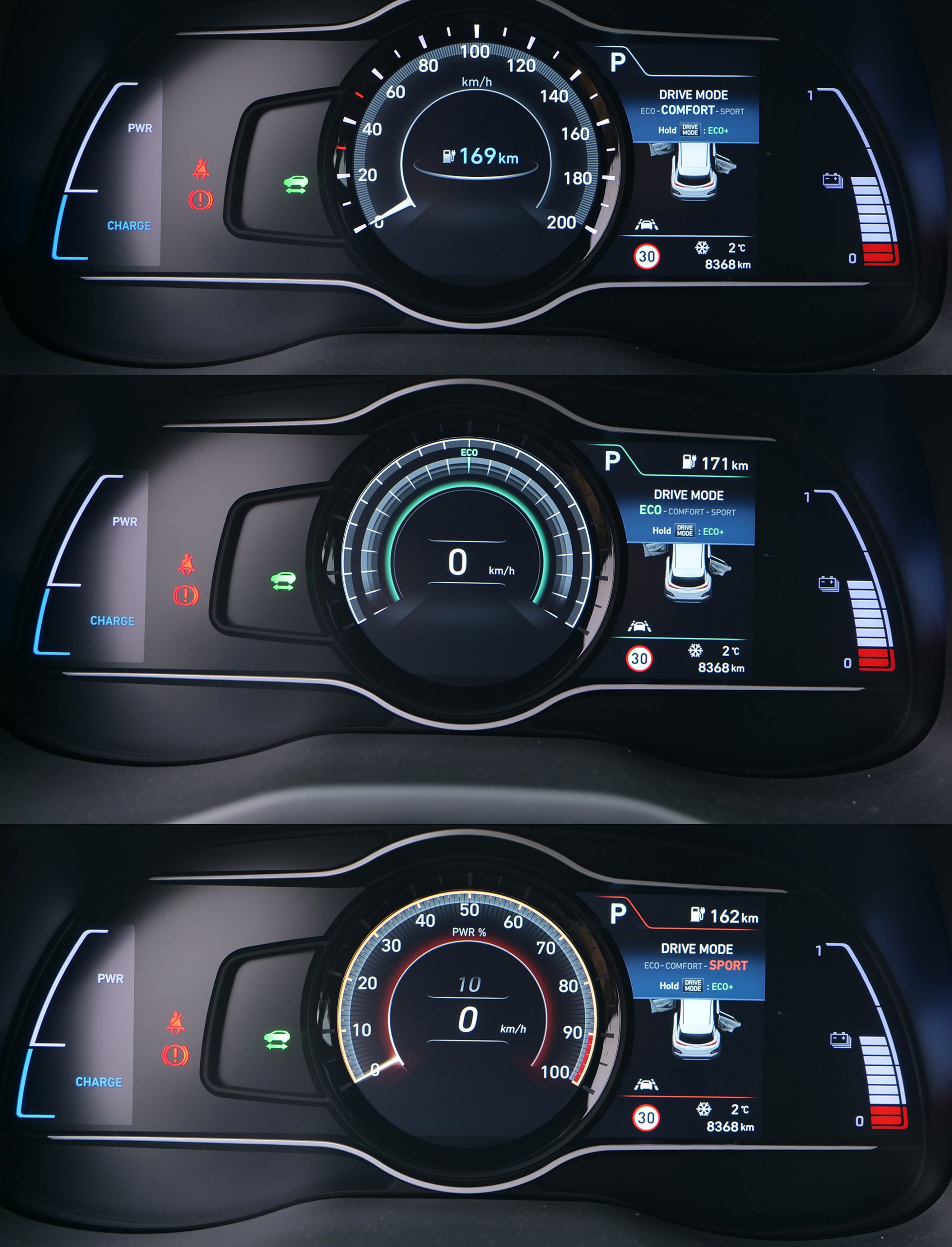
Classical music
Classical music sounds at its most inviting in Concert mode. Here you get the biggest surround effect, and the whole car is almost transformed into a concert hall. The sound is still clear as day, especially strings and whistles sound very nice.
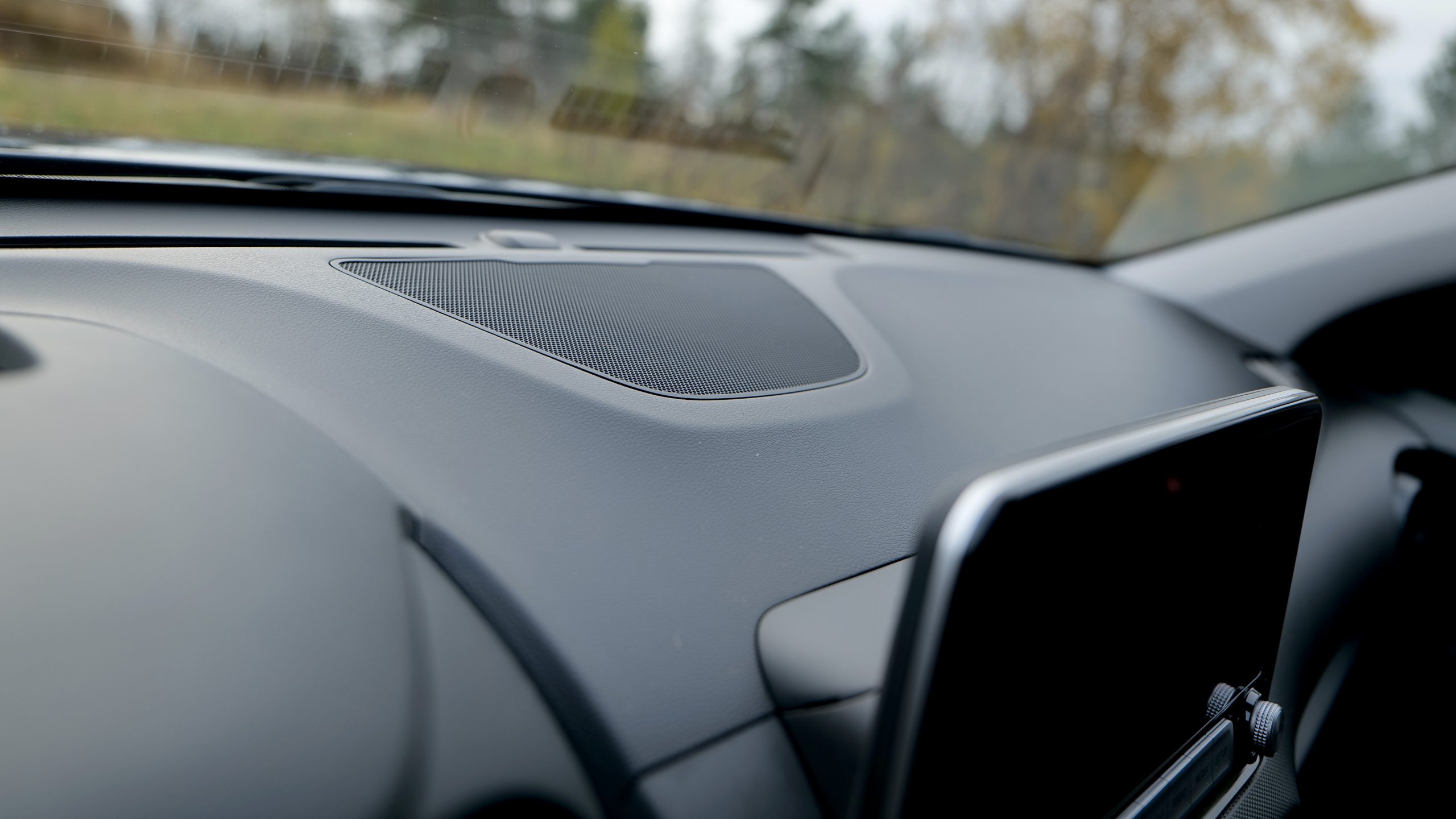
If, on the other hand, you want to play music at full volume, so that you really feel the bass in your body, this is usually best done in Reference mode. The sound can be a bit harsh when you play loud in Concert and Natural. In these modes, Krell has used digital signal processing to make the sound clearer, and although it actually sounds clearer, there is a slightly cold, clinical sound as a side effect.
The result is that I can not find a mode that is best at everything, so I sit and switch back and forth a little more often than I want. You can remedy some of the cold sound by muting the midrange slightly (there is a 3-band tone control), but then also removing some of the clarity in the sound image.
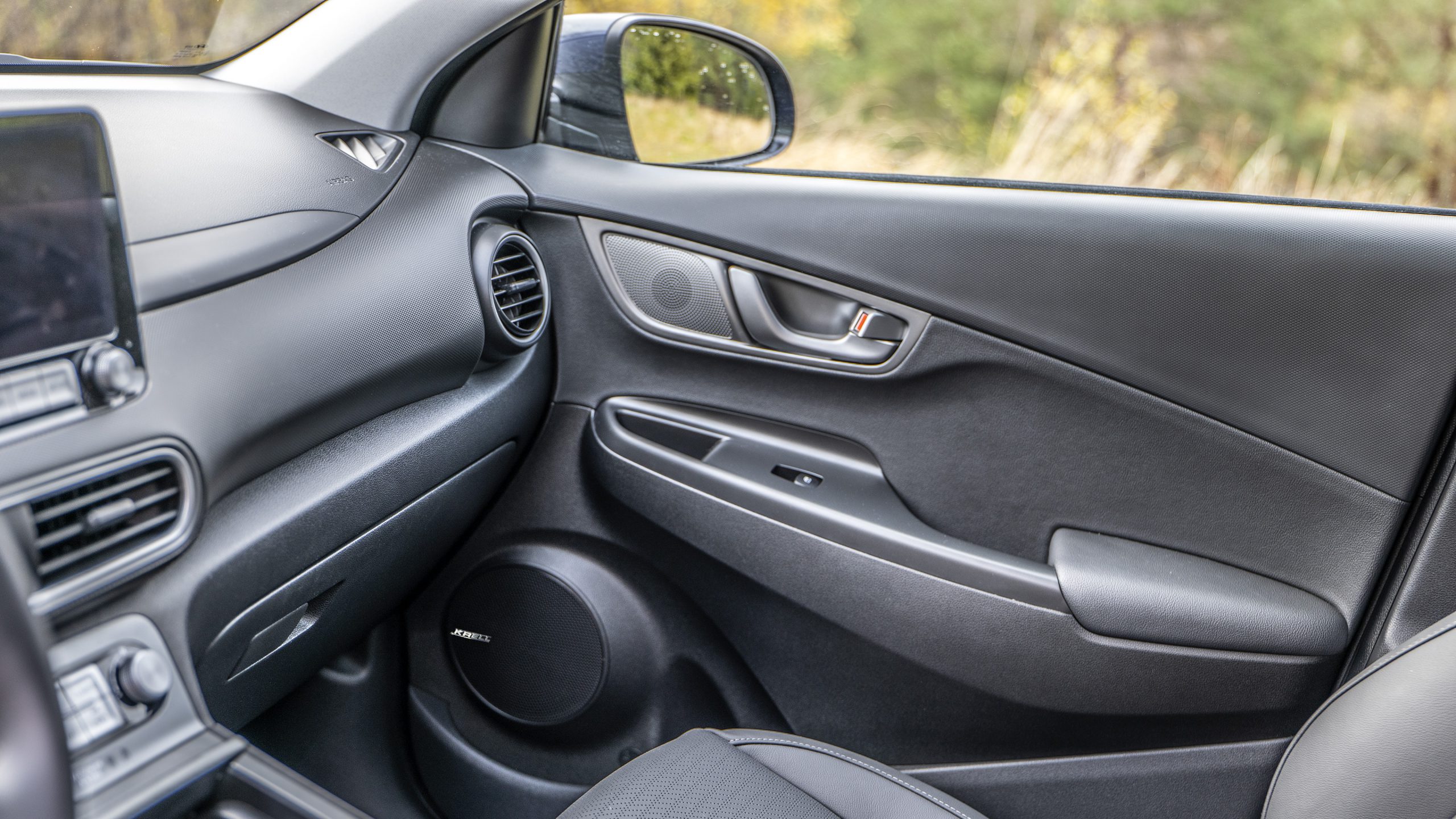
Competitors
The Krell system sounds better than the system in the Honda e, and since the Hyundai’s cabin works better than the Lexus UX 300e, which knocks on the doors when you play loud, I have to say that the overall sound experience is more successful. Although the Mark Levinson sound system in the Lexus is actually even better than the Krell system.
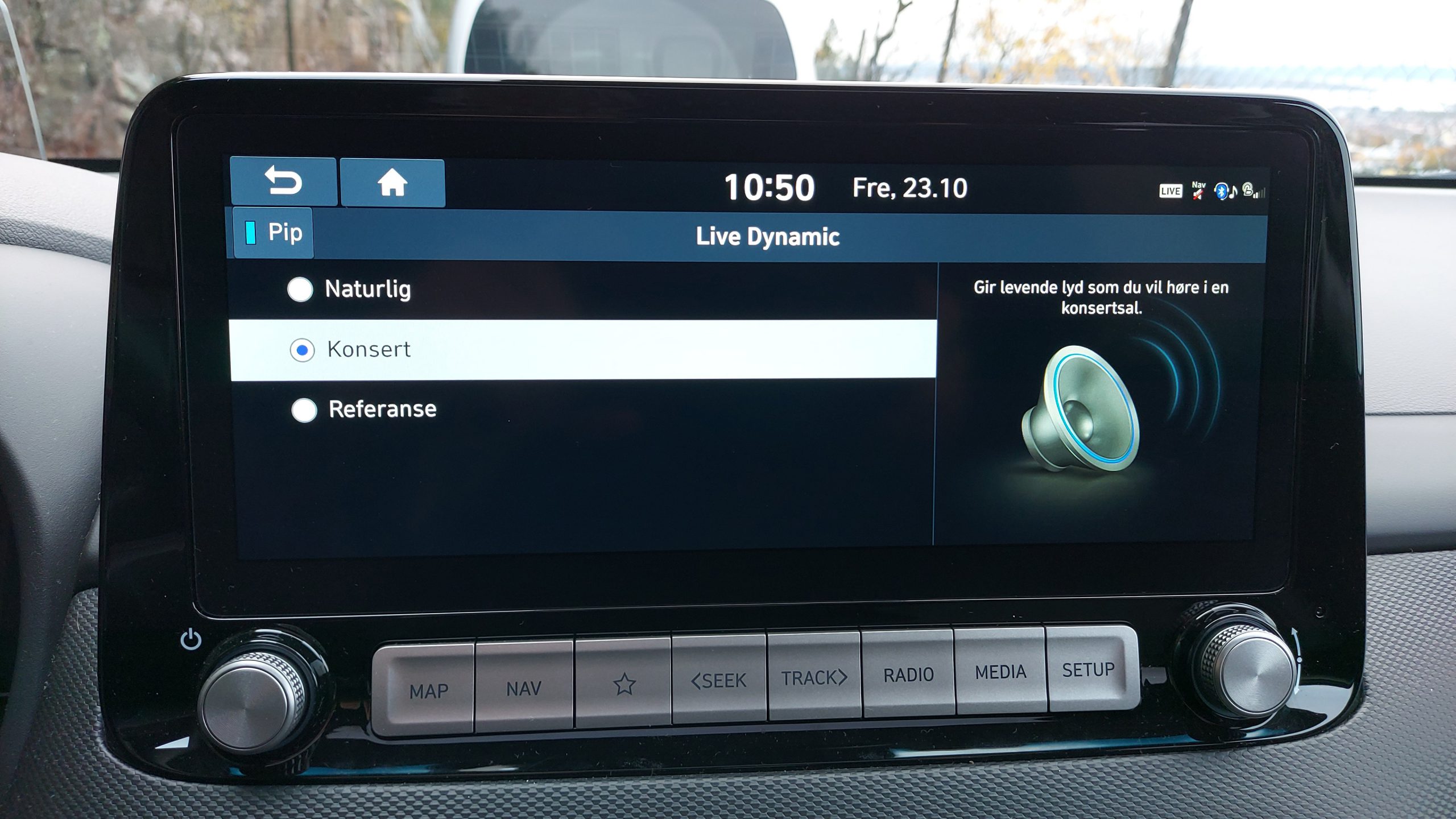
It’s still a long way up to the hard-hitting Harman Kardon system in the Mini Cooper SE, which pulls significantly more with its two subwoofers under the front seats. And there is not even a point in mentioning the Bang & Olufsen plant in the Audi e-tron. But interestingly enough, the Krell plant does not lag behind the Burmester system in the Mercedes EQC in pure sound pressure. The Burmester system admittedly has a much better resolution in the harmonic area and sounds more natural in general, but you can still have quite fun with the Krell system.
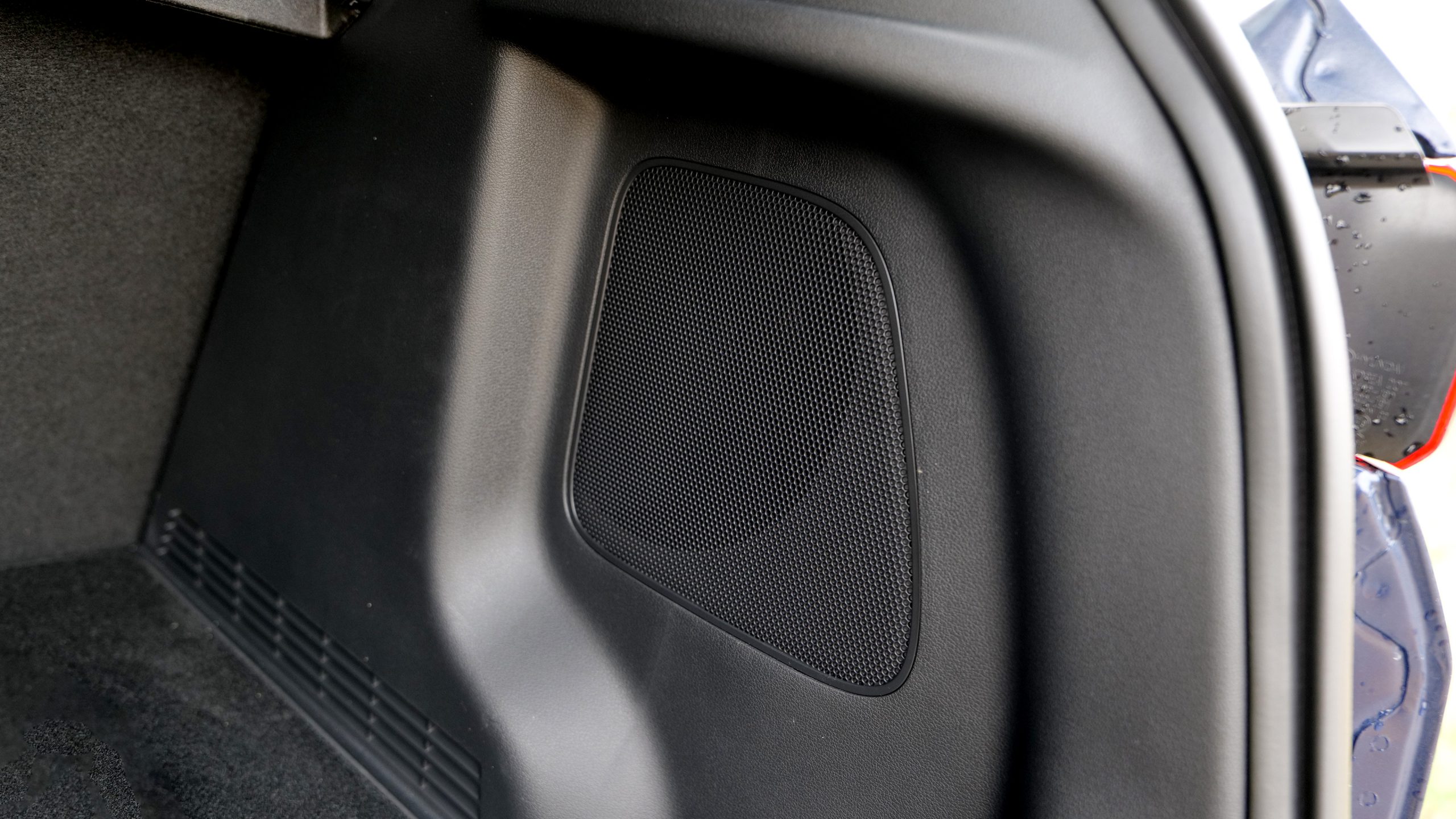
Conclusion
The compact Hyundai Kona is a really nice car to drive, and is a tempting alternative due to its long range and nice price. Although it does not have room for large in the trunk, and also has modest legroom in the back seat.
The sound system from Krell, on the other hand, is a very pleasant experience. Here you get lively bass and good sound pressure, while the sound is clear and nice. No matter what your favorite music is, you will probably enjoy this sound. The extra dynamics you get from the subwoofer, combined with the extended soundscape provided by the center speaker at the top of the dashboard, means that I would definitely recommend going for the Krell system, as opposed to the standard system.
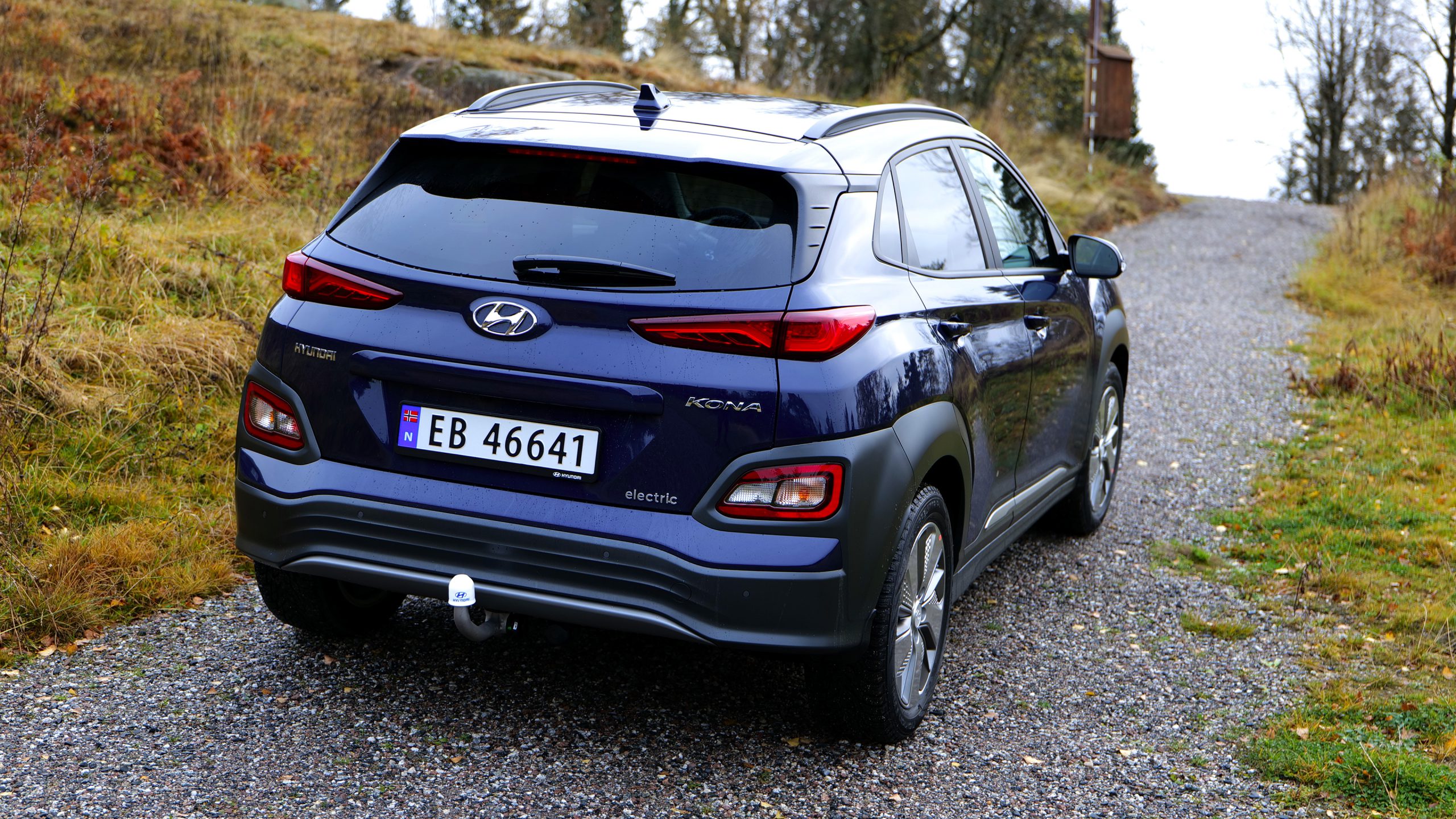
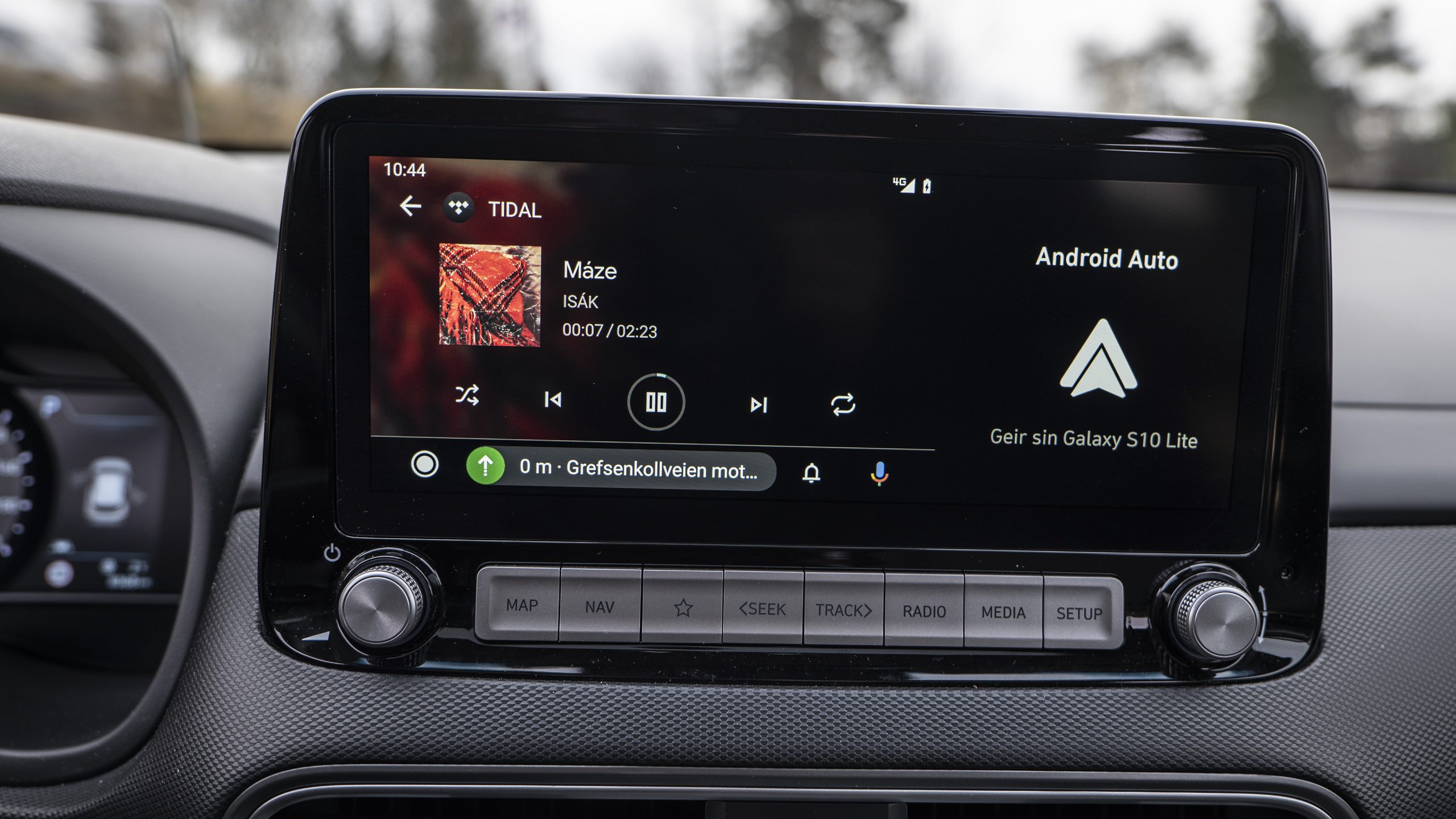
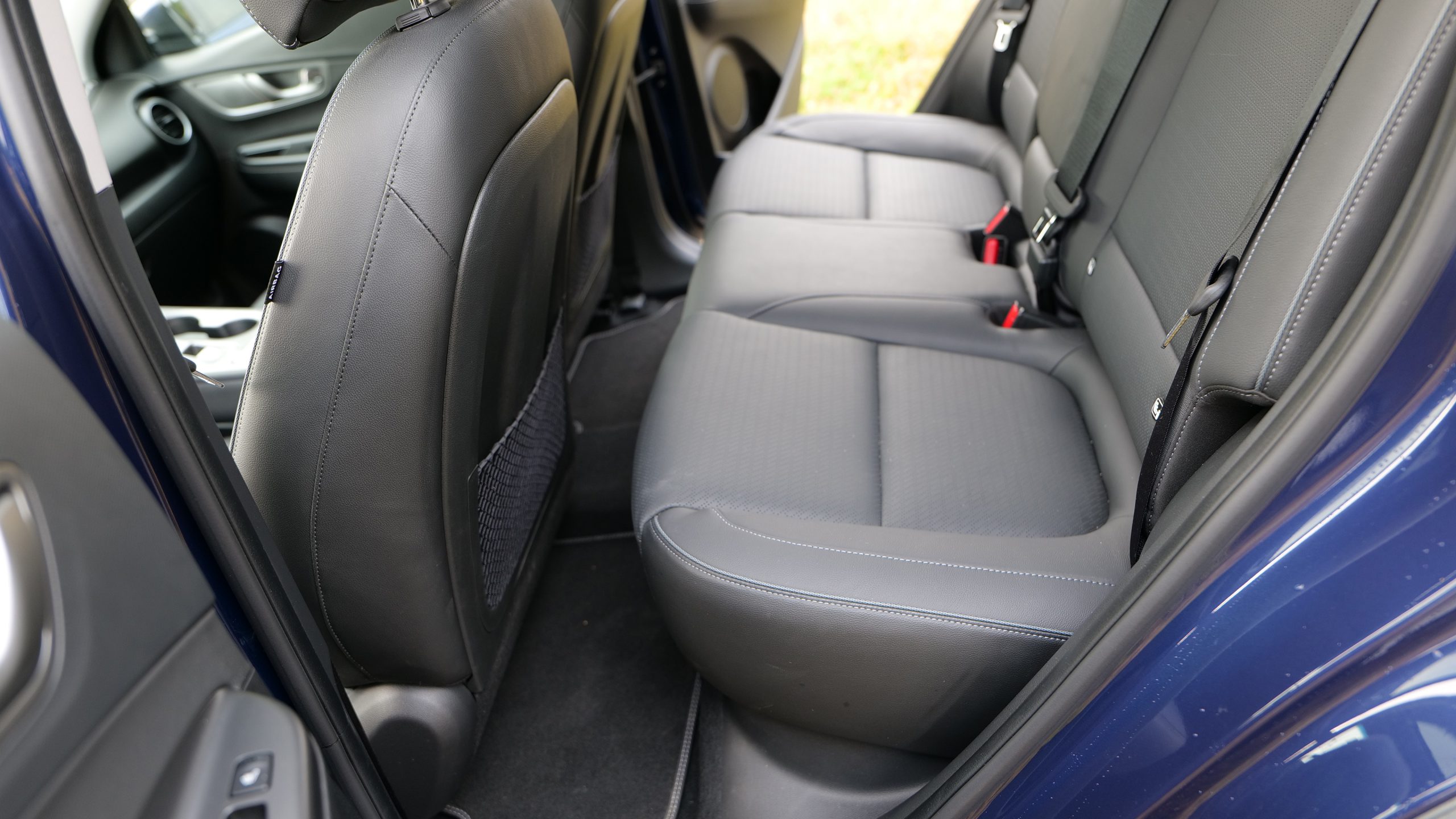
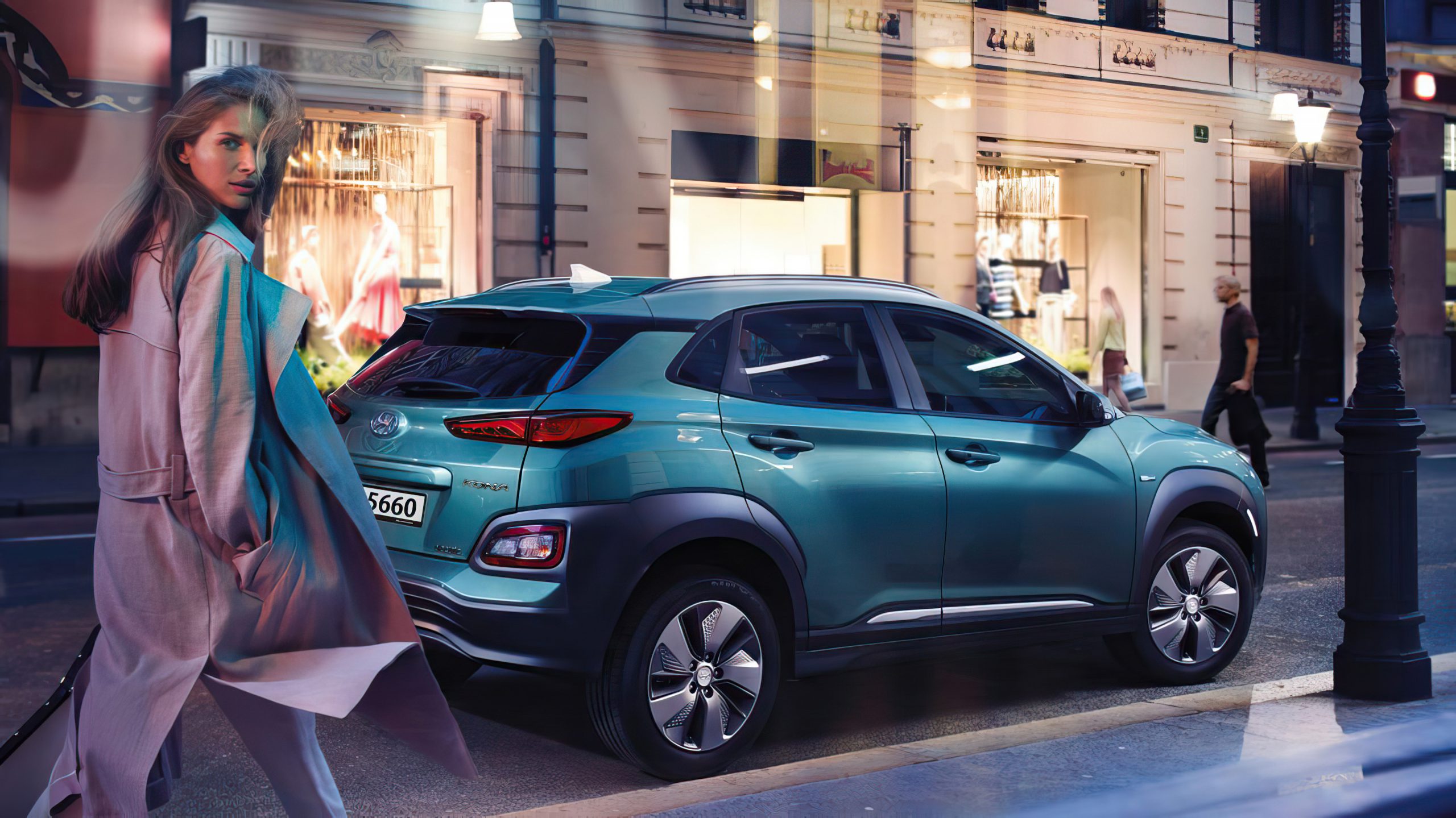

We think
Long range, good acceleration, relatively low starting price and the possibility of a lot of equipment. The sound system from Krell sounds very good. Some semi-cheap solutions, in the middle of the tree driving comfort. Very little space for passengers and luggage, despite the SUV look.
43180 €
Specifications
- Equipment package: Premium
- Range: 484 km (WLTP)
- Battery capacity: 64 kWt
- Charging capacity: 80 kW
- Power: 150 kW / 204 HP
- 0-100 km / h: 7.6 s
- Net weight: 1760 kg (incl. Driver)
- Number of speaker elements: 8
- Amplifier: 400 watt class D
- Speaker setup: 5.1
- Other: Bluelink app
- Web: hyundai.com
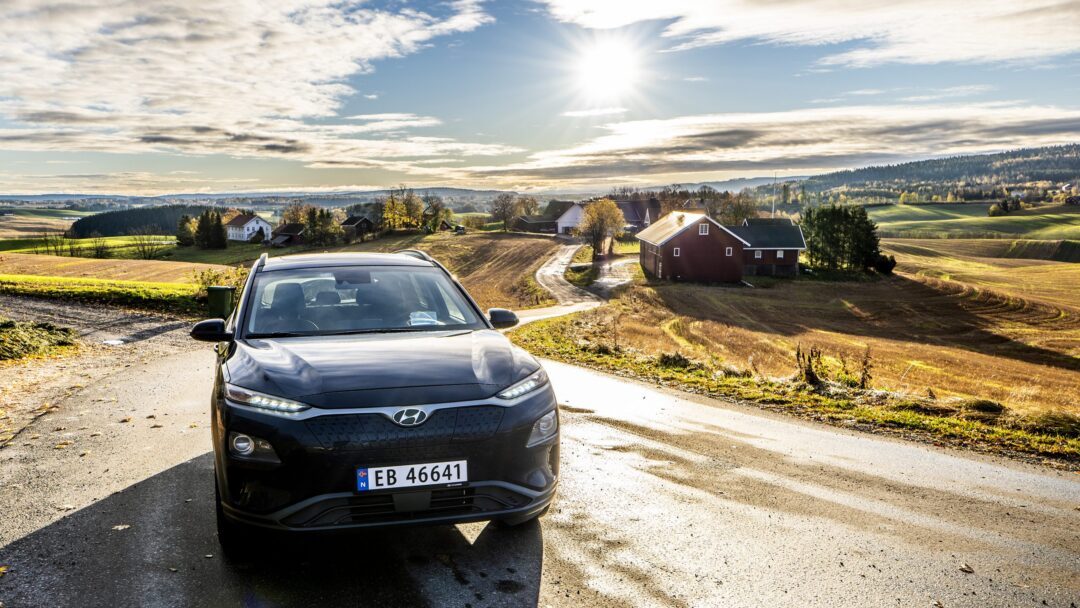

I love my Kona Ultimate really quick off the mark and is a smooth drive.